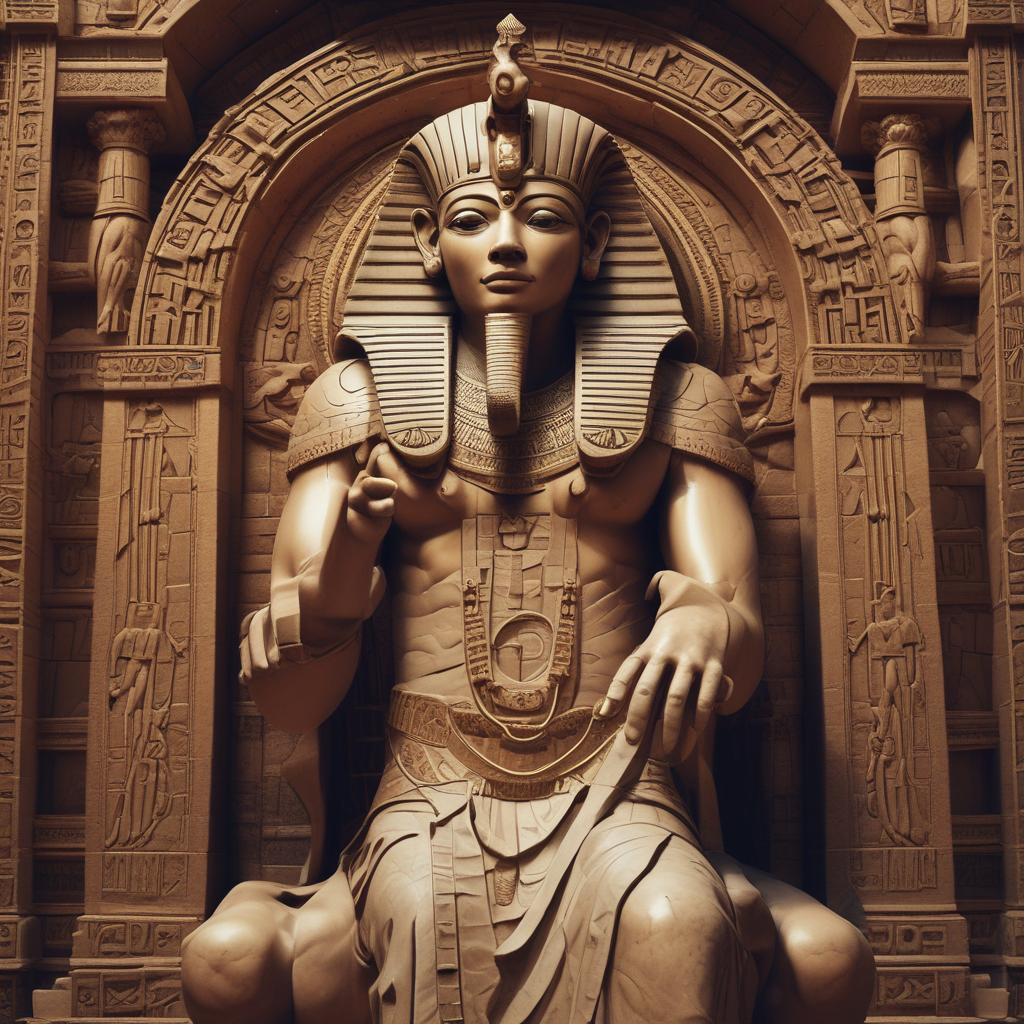The Myth of the God Montu in Egyptian Mythology
Egyptian mythology is rich with gods and goddesses, each symbolizing different aspects of life and nature. One of the revered deities in ancient Egypt is Montu, the god of war and strength. Let’s delve into the myths and legends surrounding Montu to uncover the significance of this powerful figure.
Who Was Montu?
Montu, also known as Menthu, was an ancient Egyptian god primarily associated with war, violence, and valor. He was often depicted as a man with the head of a falcon, symbolizing both his ferocity in battle and his connection to the sun god Ra. Montu was worshipped in the form of a warrior king, leading the pharaoh to victory in times of conflict.
Attributes and Symbols
As the god of war, Montu was often depicted wearing a plumed headdress and carrying various weapons such as bows, arrows, and swords. He embodied the qualities of courage, aggression, and triumph in battle, making him a formidable force to be reckoned with. In Egyptian art, Montu is frequently shown riding in a chariot pulled by raging bulls, symbolizing his strength and dominance.
Importance in Egyptian Mythology
Montu played a crucial role in Egyptian mythology as the patron god of warfare and the defender of the pharaoh and the Egyptian people. His cult was particularly prominent in the ancient city of Thebes, where he was venerated alongside other deities like Amun and Mut. Warriors and soldiers often dedicated their military victories to Montu, seeking his blessing for protection and strength in battle.
Legacy and Worship
Despite being primarily associated with war and violence, Montu was also linked to the sun god Ra, signifying his connection to light, power, and leadership. Temples dedicated to Montu were centers of religious worship and military training, where followers paid homage to the god through elaborate rituals and ceremonies. The continued reverence for Montu highlights his enduring legacy as a symbol of courage and resilience in the face of adversity.
FAQ: The Myth of the God Montu in Egyptian Mythology
Who was Montu in Egyptian mythology?
Montu was an ancient Egyptian god associated with war and the sun. He was often depicted as a falcon-headed or bull-headed deity, symbolizing strength and aggression in battle.
What was Montu’s role in Egyptian mythology?
Montu was revered as a fierce warrior god who protected the pharaoh and the Egyptian people in times of conflict. He was believed to unleash his wrath on enemies and bring victory to those who worshipped him.
Where was Montu primarily worshipped?
Montu was primarily worshipped in the ancient Egyptian city of Thebes (modern-day Luxor). The Temple of Montu was dedicated to his worship, where rituals and sacrifices were performed to honor and appease the god.
What symbols were associated with Montu?
Montu was often linked to the bull, which symbolized strength and virility. Additionally, he was sometimes associated with the sun, embodying its fiery and powerful qualities in battle and protection.
Did Montu have any family connections in Egyptian mythology?
Montu was considered the son of the goddess Raet-Tawy and the god Amun. He was also sometimes associated with other deities, further solidifying his importance in the Egyptian pantheon.




